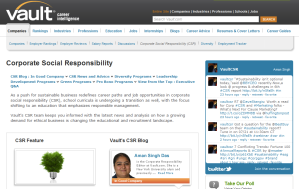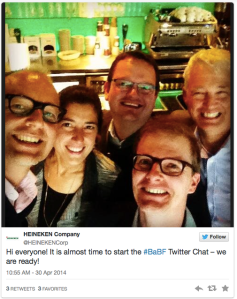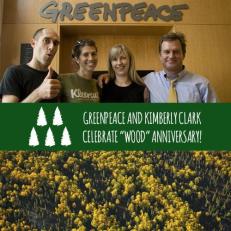Tags
andrew winston, BT, climate change, climate week nyc, divestment, environment, felipe calderon, fordham, fossil fuels, hannah jones, human rights, hunter lovins, ikea, jo confino, mars, mayor bloomberg, Nike, peter shumlin, philips, pope francis, poverty, prakash javadekar, renewable energy, siemens, Sustainability, sustainable business, world bank
The rationality of business leaders is leading us to complete disaster.
Voicing concern for the continued lack of action on climate change, World Bank President Dr. Jim Yong Kim joined many others at the closing ceremony of Climate Week NYC (CWNYC) 2015 imploring the community to wake up and smell the air (no pun intended).
Referring to the ever maddening chase of the business case across corporate America, Dr. Kim emphasized that we now have enough facts and figures to address a global crisis unraveling in real time in places like California (see: drought and water shortage), island nations (land erosion) and across our depleting oceans and forests.
“My son will live through a 2, 3 or maybe even 4 degree Celsius warming. We cannot keep apologizing to our children for our lack of action. We must change course now,” he added, vocally seconded in frustration and urgency by many others who took the stage after him, including Former President of Mexico Felipe Calderon.
After more than ten days of events spread across New York City and covering a multitude of topics – from climate data and social justice to poverty, Rule of Law and women empowerment – CWNYC ended with several notable announcements this week, including commitments from Walmart, J&J, P&G and Nike to strive for sourcing 100 percent of their energy needs from renewable sources, six national banks coming together to ask for a climate treaty and divestment numbers reaching $2.6 trillion.
Mayors, Governors and Ministers Urge Urgent Attention
The week also saw the likes of NYC’s celebrated former mayor Michael Bloomberg and India’s Union Minister of Environment Prakash Javadekar taking the podium to ask policymakers globally to agree on a binding climate agreement at the upcoming Conference of the Parties (COP21) in Paris this December.
 While Mayor Bloomberg emphasized “you get what you pay for” and that “businesses invest where people live,” citing that New York City continued to be a mecca for business investment because of its early attention to the impact of climate change, the Indian Minister asked policymakers to frame climate change more broadly as a need to shift consumption patterns and lifestyles.
While Mayor Bloomberg emphasized “you get what you pay for” and that “businesses invest where people live,” citing that New York City continued to be a mecca for business investment because of its early attention to the impact of climate change, the Indian Minister asked policymakers to frame climate change more broadly as a need to shift consumption patterns and lifestyles.
Referring to Pope Francis’ articulation of the “throwaway culture, the minister added, “India is a big country but it is also a poor country…this is about lifestyles and financing a global shift to cleaner sources of energy.”
Poverty is “the biggest pollutant” he said. “Human intentions have led us here and human intellect will help us lead the way out.”
For Vermont Governor Peter Shumlin, climate change is no longer up for debate. Emphasizing that his state’s residents were already living with the impact of climate change and were fully engaged on adaptation, he said:
“We don’t live in the land of denial…a whole generation of Vermonters are learning about climate change the hard way.”
Open for Business: Corporations Show Early Results from Climate Adaptation Efforts
Not too far behind was the corporate contingent including leaders from Ikea, Kellogg’s, Walmart, Nike, BT, DSM, Philips, Siemens and many others as well as the State of New York Comptroller’s Officer, who participated in a plethora of rapidfire discussions, many ably and enthusiastically moderated by UNFCCC Executive Secretary Christiana Figueres, on how they were accounting for climate change risks through various tactics and strategies. Here’s a sample:
- Product innovation: Siemen’s is rolling out hundreds of windmills, estimated to power 7,000 – 8,000 homes each, Philips and Ikea are leading drive toward LED lighting
- Advocacy: BT working across sectors on rolling out infrastructure to support the future of clean technology, automation and access for all, Mars joining hands with many other companies through investor advocacy group Ceres asking policymakers to agree on a climate treaty at COP21
- Value chain mapping: According to Nike’s Chief Sustainability Officer Hannah Jones, the amount of polyester used in one year uses as much fossil fuels as it takes to operate 185 coal plants. Materials matter, she emphasized and therefore, Nike is evaluating its entire ingredient and value chain to understand all points of impact.
- Circular thinking: IKEA looking ahead at leasing its products, extending their life and helping customers resell, recycle and reuse.
- Scenario planning: NYS Comptroller’s office increasingly looking at “where we put our money. If companies don’t change their practices, we will move the money.”
None of His Business: Finding the Way Forward in Pope Francis’ Words
In an equally dramatic setting ahead of Pope Francis’ visit to the U.S. – New York City’s Jesuit University, Fordham – Andrew Winston, author of The Big Pivot, Jo Confino, Executive Editor at The Huffington Post, L. Hunter Lovins, president of the Natural Capitalism Solutions and Michael Pirson, Associate Professor for Management Systems at Fordham took the stage to contextualize why a religious leader was cutting through religious and political clutter to issue an urgent call to action.

Before a packed auditorium of students, professors and others, the three distilled the 80 page Papal encyclical for what this meant for business, for consumers, students and perhaps more overwhelmingly, for humanity. The conversation was variously electric, sarcastic, alarming and deeply touching.
Winston cracked open the discussion by urging the audience to pay attention to what the Pope is saying. “If the Pope is signaling that the end might be nigh, we better sit up and listen. We have serious equity problems and we better start connecting it with environmental challenges quickly.”
Bringing a politically charged topic to life, Lovins alluded to the millions of refugees making their way west from Syria in the hopes of a happier life.
“Are we prepared for what that means for our cities, our local economies?” she asked. “I’ve always said climate change is not a moral issue; it is a business opportunity. But the Pope is starting to make me change my mind… This [climate change, poverty, economics] is not a religious issue. This is a global issue for humanity to confront and address as humans.”
Confino, who recently left The Guardian to lead Huffington Post’s foray into purpose and impact reporting, chose to take a more philosophical point of view advocating that “we need to re-convince ourselves that we need each other; that we don’t have control over everything whether we like it or not.”
On the other hand, Pirson implored education institutions to sit up and take note of what this meant for them.
“Every institution has to ask themselves why they exist and how they are helping the world move forward sustainably. This is a crisis and we need all hands on deck. Everywhere. If we’re not demanding that, we’re wasting our time,” he said.
So where to from here?
When do we shift from call to actions to simply action? While many more companies are stepping up their efforts – General Mills and Kellogg’s serving as great examples as they begin their path toward net zero – on the various threads of climate change, many, many more remain in the shadows waiting and watching.
Regardless of what gets agreed to in December, climate change is already changing our summers and winters (check out WXshift to see for yourself). Changing weather patterns are already impacting farmers’ harvesting timelines and forcing millions to relocate for better proximity to clean water and air. And as this impact spreads beyond the immediate areas under threat, our notions of ordinary and luxury stand to be tested.
We’re going to have to respond. We’re going to have to adapt. Our bottom lines will change.
And we’re going to have to continue to push the leaders and pull the stragglers along. After all, if the future of our children is not worth it, what is?

 Commentary section
Commentary section

 chances are there’s a story – or two – to be told, learned from and examined for replicable tips.
chances are there’s a story – or two – to be told, learned from and examined for replicable tips. organizations a tangible way to move forward on protecting and conserving forests worldwide.
organizations a tangible way to move forward on protecting and conserving forests worldwide.
 business and society.
business and society.
 with Rainforest Alliance is because we share common goals. Take tea for example: Standards are driving up fast in an industry that’s not easy to standardize. [This is where the] scale of Rainforest Alliance is significant – and essential for the USLP to come alive.
with Rainforest Alliance is because we share common goals. Take tea for example: Standards are driving up fast in an industry that’s not easy to standardize. [This is where the] scale of Rainforest Alliance is significant – and essential for the USLP to come alive.